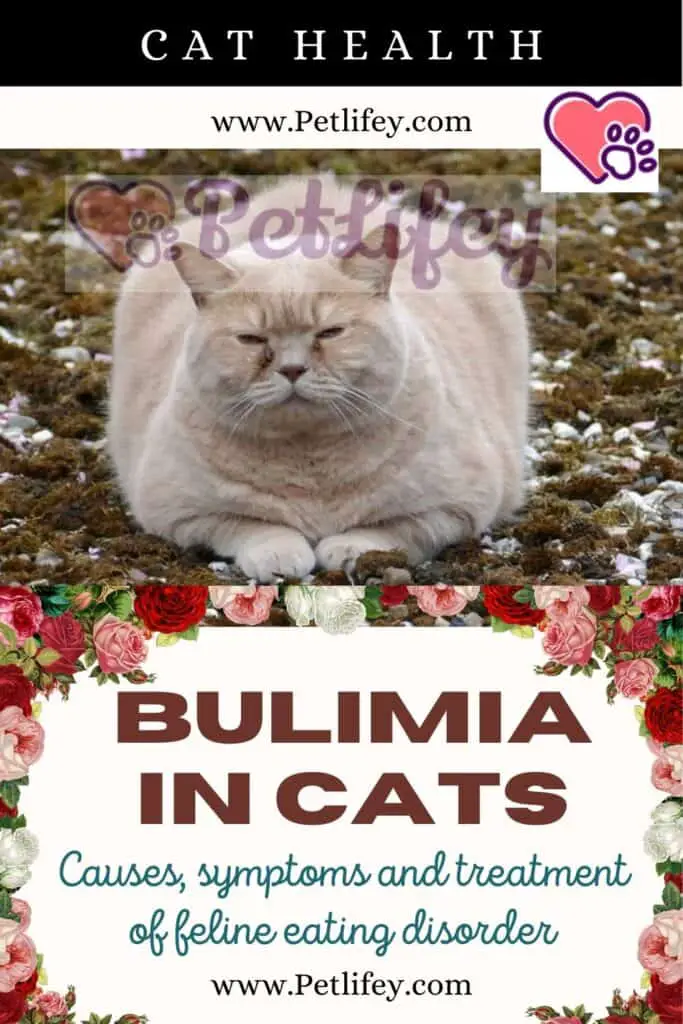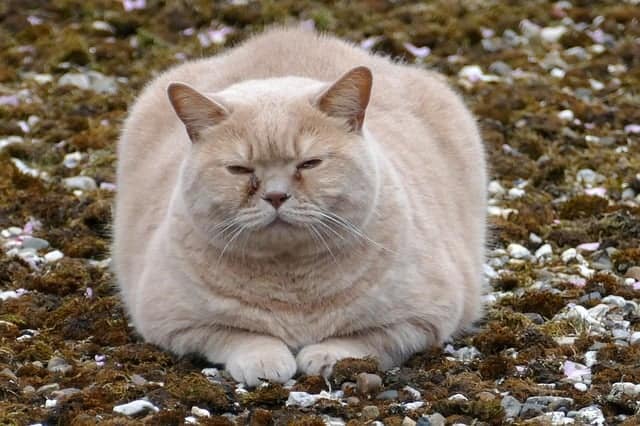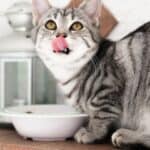Along with anorexia, bulimia is one of the main eating disorders that can affect cats: here’s everything you need to know.

Even our little four-legged friends can suffer from eating disorders; some of them can lead to particularly serious consequences. The bulimia in the cat is one example. What are the symptoms of the disease? What are the causes? How is it treated? Let’s find out together in this article.
Bulimia in cats: what it is and what are the causes
The bulimia is a well-known eating disorder, which may also affect the cat. Unfortunately, when it occurs in our four-legged friends, the problem is very often underestimated.
The feline tends to eat large quantities of food many times during the day; not infrequently, while admitting the existence of a cat’s weight problem, one does not investigate, with the help of one’s trusted veterinarian, the real causes of his greed.
Bulimia can also be caused by other diseases, such as feline diabetes, hyperthyroidism or the presence of parasites in the intestine.
The disorder, however, can also be induced by severe stress; and at this point it is necessary to investigate the causes of the latter. As is known, the cat is a very habitual animal, and tends to perceive changes as a threat to its daily routine.
The reasons can be many: from the introduction of a new member into the family (dog or cat, and even a baby) to a move, or to the introduction of the same in an unfamiliar environment (it can happen to example that an adopted cat struggles to fit into the context of the new family).
Stress can manifest itself in various ways: the feline can release the tension and anxiety accumulated even in food, eating well beyond their daily needs.
How to recognize it
The main symptom of bulimia is, as mentioned, an immeasurable increase in the appetite of the cat, which eats several times a day, quickly and voraciously, an amount of food that far exceeds its daily requirement.
There is no doubt that the owner, in most cases, is the involuntary accomplice of the worsening of the disease; superficially we tend to downgrade a serious ailment like bulimia into a simple cat gluttony, by not taking it seriously, or by doing it too late.
Not to mention that the cat’s meow is unfortunately very often univocally identified in a request for food, neglecting what may be the relational needs (even with us) of the animal.
How to cure

In the presence of the symptoms described, where it is suspected that our cat may suffer from bulimia, it is necessary to promptly contact your trusted veterinarian.
In diagnosing the disease, the professional will first of all ascertain that the cause is not attributable to another disease affecting the animal; only later will it be possible to investigate the cat’s psychological discomfort.
In the latter case, the collaboration of the owner will be precious, who better than anyone else knows the history and family environment of the feline, in order to identify the real reason for his discomfort.
The therapeutic approach, of course, will differ depending on the underlying cause of bulimia in the cat.






